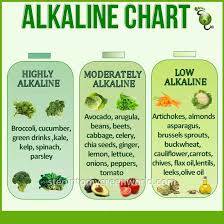Women over 50 and Nutrition Changes
by Tara Canning Nutritionist,fMed
What are the main health concerns for women over 50? Going on our average patients in the clinic the top 5 concerns would be-
1. Menopause
For some women this starts before 50 as Oestrogen and Progesterone levels drop. This can be gradual or quick but a good diet high in-
- essential fatty acids found in oily fish, green leafy vegetables, avocados nuts and seeds
- good quality proteins to rebuild tissues and provide amino acids for our neurotransmitters to stabilise mood swings
- certain herbs and spices buffer hormone imbalances eg. fenugreek, raspberry leaves, dandelion leaves and roots.
2. Weight gain or Obesity
The 'fat around the middle' as described by Dr. Marilyn Glenville in her best selling book is the accumulation of fat around the stomach, thighs and bottom, especially for women after the menopause. This too can be linked to hormone imbalances but increasing fibre intake, getting more active and good quality sleep reduce your obesity risk by up to 12%!
Examples of fibre foods tips are-
- 1 teaspoon psyllium husks into your morning porridge, overnight oats or smoothie
- 1 heaped teaspoon ground seeds every day on your food
- Aiming for 7 portions of fruit & vegetables daily with at least 4 of them raw, where possible.
Risk of bone fractures increases in menopausal women by up to 37% as the structure weakens over 40. General wear and tear, previous injuries, lack of physical activity and low calcium and highly acidic diets and being overweight plays a part too.
'Use it or lose it'
who hasn't said it!
4. Cancer, especially Breast Cancers
The 'cleaner' the diet the lower the cancer risk is the general consensus. A study of nearly 92000 women in California found that a diet high in plant based foods was associated with reduced cancer risk.
Alkaline rich foods like- see chart
5. High Blood Pressure
There are almost 1.2 million people in Ireland with high blood pressure according to the Irish Heart Foundation. High blood pressure = increased risk of heart attacks and secodary heart conditions.
Exercising the heart muscle to beat regularly and stronger actually lowers blood pressure, like clockwork!
And you don't have to be in the gym 6 days a week.
How much activity should you strive for? A 2013 report by the American College of Cardiology (ACC) and the American Heart Association (AHA) advises moderate- to vigorous-intensity physical activity for 40-minute sessions, three to four times per week.
Heart muscle needs to be exercised just like every other muscle!
Increasing your activity level can be as simple as:
- using the stairs
- walking instead of driving
- doing household chores
- parking further away from your work or destination
- gardening
- Tai Chi or Yoga
- signing up for a charity event
If you are worried about any of these 5 health conditions, start with the basics and get your health practitioner, nutritionist or GP to guide you to the best course of action and support to ease your worries.
091 583260
CONFIDENTIALITY AND PRIVACY NOTICE
Information transmitted by this email is proprietary to Dr Clare Apothecary & Clinic, Galway and is intended for use only by the individual or entity to which it is addressed, and may contain information that is private, privileged, confidential or exempt from disclosure under applicable law. If you are not the intended recipient or it appears that this mail has been forwarded to you without proper authority, you are notified that any use or dissemination of this information in any manner is strictly prohibited. In such cases, please delete this mail from your records.





 Alkaline Foods Chart Levels
Alkaline Foods Chart Levels


No comments:
Post a Comment